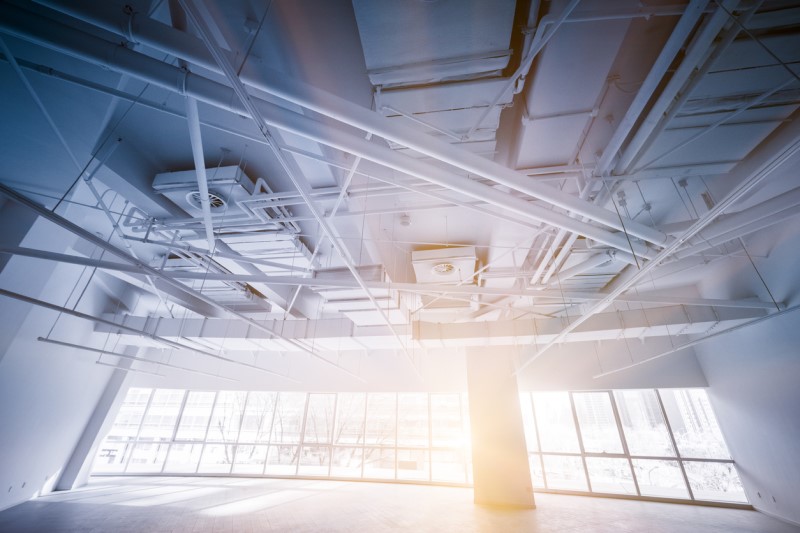A Building Owner’s Guide To Commercial Heating System Installation
If you’re a building owner, you know that keeping your tenants warm and comfortable is essential for your success. According to the U.S. Energy Information Administration, heating and cooling accounts for nearly half of the energy use in commercial buildings. That’s why it’s essential to have a good understanding of the commercial heating system installation process.
This guide will walk you through everything you need to know about commercial heating installation. It’ll also discuss heating unit types, their pros and cons and offer you some maintenance tips.
What Is a Commercial Heating System?
Commercial HVAC systems are the heating, ventilation and air-conditioning system for commercial buildings. These building systems need a high level of air quality due to their complex operation. The heating system works by bringing fresh air into a building and filtering it before being distributed through vents.
The concentration of odors get lowered since stale air from hot exhaust gases from various machinery and equipment is pulled out. In addition, the temperature remains regulated throughout thanks to thermostat controls.
How Does a Commercial Heating System Work?
Its control features make sure that there’s consistency in temperature levels within the entire facility. The heating unit can also improve people’s comfort by adding humidity whenever needed.
Commercial Heating System Installation Process
A building can have a single type of HVAC heating system or a combination. This depends on space requirements and budget limitations. For example, small office space in the city doesn’t need window units. Yet, one that is too large for a single central unit or mini-split system, you should install several window units.
Also, keep in mind that you must work with qualified and trusted contractors. They’ll find a solution that best suits your needs while keeping safety standards in mind.
Types of HVAC Systems for Commercial Buildings
There are three basic types of commercial heating systems. They include; ductless mini-splits, central units or window units.
The Ductless Mini-Splits
This system comprises of a unit inside each room connected to piping located under each floor. This connection system ensures that energy efficiency is met since the air only travels as far as needed. Because of their small sizes, they can be installed in window units.
This setup results in silent operation because no compressors or ducts are near living area. Although mini-splits are more expensive to install, they require less maintenance. Thus, it depends on what your building needs are.
Central Heating Units
These systems are more economical, but they are louder than mini-splits. It doesn’t matter if the compressor is placed outside the building.
The size of each unit required will depend on factors like, space availability within each room, and how much humidity it can handle. This system is excellent for cooling since there’s no need to change air filters. However, it takes up a lot of space and requires proper insulation.
Another advantage of central heating units is that you can use them with conventional ductwork and vents. This setup isn’t that energy efficient because heat loss occurs when air travels through PVC and metal tubing.
Window Units
These systems are cost-effective and straightforward if you don’t need heating functionality or ducting services. These are the least expensive option since they don’t necessitate installation work within a building. Yet, you will need to get more of them if there aren’t enough windows to disperse air throughout your entire facility.
Other commercial heating systems include:
- Water or steam-Based System
- Air-Based System
- Geothermal Heat Exchange System
Before you consider heating service, you must understand how all these systems work. At reputable firms, trusted experts will discuss the pros and cons of each heating system with you. This way, you’ll make an informed choice of the best heating unit for your commercial building.
Maintenance Tips for Commercial HVAC Systems
Like all other mechanical equipment, commercial HVAC systems need regular care to operate safely. Since commercial buildings are complex, their heating service units would be more complicated than residential ones. As a building owner, it’s important to know what maintenance your commercial heating system needs so that you can plan accordingly.
Here are simple guidelines on how you should conduct heating system maintenance:
- Ensure that all outdoor systems are off before entering the system
- Turn off power at the main circuit breaker or fuse box for your building before getting started
- Check filters and clean or replace as required by the manufacturer
- Inspect and service all electric heaters if applicable
- Check combustion air intake, flues and dampers
- Remove debris from equipment
- Open covers on pumps and check oil levels
- Test fan operation
- Replace worn belts and check coolant level
- Ensure that all safety devices are operating properly
- Reset breakers and test power supply
During winter, be sure to replace filters every month or as the manufacturer recommends. This checklist doesn’t apply to each system equally. You’ll need to consult with your contractor for more specific recommendations based on your type of commercial heating system.
Pros and Cons of Installing Commercial Heating Units
The benefits of commercial heating services are pretty obvious. Your building will be much warmer throughout the year!
But what might not be as obvious is that installing a commercial heating system will also help you save money. Here’s how:
- You will use less energy, which means lower utility costs
- Your systems will run more efficiently
- There is decreased wear on windows, seals, and insulation
- Operating temperatures are more even throughout all spaces
- Occupants are happier because they are kept comfortable
Cons of heating installing include higher installation costs for commercial buildings compared to residential buildings. Another challenge is increased risk to occupants if units fail. Also, some systems might not be customizable like others.
The Average Commercial Heating System Installation Costs
The price of commercial heating systems varies depending on the type and its applicability per building use. If you don’t need to install new HVAC units due to existing systems being in good condition, your costs will be lower. Overall, it ranges from $10,000 to $30,000, with mini-splits falling on the low end while central units are on the high end.
Hire the Best Commercial Heating Installation Experts Today
Are you a building owner or run an industrial business and need an efficient heating unit?
At Industrial Mechanical Contractors, we offer the best commercial heating system installation and maintenance services. Our commercial HVAC services are available 24/7 at affordable services. Get in touch with us now for reliable commercial heating services.






